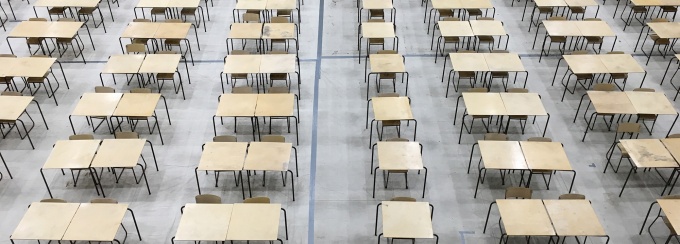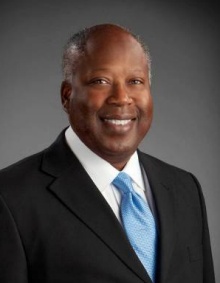
Photo by Akshay Chauhan on Unsplash
Providing access through our Bar Exam Support Fund
Building on generous alumni gifts, UB School of Law is looking to provide much-needed support at a critical time for our students: the run-up to the bar exam.

H. Todd Bullard ’87
Bar prep courses and the cost of the exam itself can add up to thousands of dollars—for some students, an unanticipated expense that can derail their progress toward a legal career. Many alumni, including H. Todd Bullard ’87, who has contributed to the fund to provide student support, see that hurdle as an issue of access and a roadblock to further diversifying the legal profession.
“Students of color face many obstacles accessing the practice of law,” says Bullard, a partner in the Rochester law firm Harris Beach. “First is the law school admission process; second, the financing of a law school education; and after successful completion of those steps, then those students—who often have limited resources—have to raise funds for bar review courses as well as pay a fee to actually sit for the bar exam. The latter obstacle to me is one that illustrates that access to our profession is too often based on financial resources and not talent, desire and a deep commitment to equal justice. This must change.”
William MacDonald, the law school’s director for academic success, sees the struggle every year as third-year students register for the exam and look at commercial bar review courses.
The costs are significant. The fee to register for the New York Bar Exam is $250 (and international students pay $750); the MPRE ethics exam, required in New York and most other jurisdictions, is $150; and the specialized New York Law Exam is $29. And those costs pale by comparison to the expense of bar prep. A basic course offered by a popular bar prep provider is $1,999 and fuller-featured alternatives range up to $4,199.
“People who don’t have that kind of money to spare are put at a disadvantage,” MacDonald says. Some compensate by buying a cut-rate, bare-bones bar prep course, which he says may technically cover the 14 subject matter areas that the exam tests, but generally without providing the vital explanation, practice, and feedback that would properly prepare them to actually take the exam. More commonly, MacDonald explains, hard-pressed students will buy a comprehensive course but have to work to cover their living expenses and the course fee—stealing valuable time and energy in a summer when they should be studying at least 60 hours a week for the exam.
It’s possible to borrow to cover those expenses, MacDonald says, but that involves taking a privately issued loan, which typically comes at a higher interest rate than a government education loan and may require a co-signer. “Some of the students who need it the most can’t actually qualify to get these loans,” he says.
“The people who need these resources generally need them for a combination of reasons,” MacDonald says. “One is their general socioeconomic background; another is whether they’ve had financial support from their parents or they have been working on their own for a while. And the third is, have they come from a situation where they knew someone who was a lawyer, or did they get to law school without that kind of mentorship so they essentially couldn’t foresee that they needed to put aside these resources?"
The law school’s support for students facing bar exam expenses, he says, affords an opportunity for donors to invest in making the profession more diverse and making a real difference for our students. “There’s a greater awareness among alumni that this is a really efficient way to help all of our students,” MacDonald says. “This is the last hurdle that they have to get through. To some people it’s not a big deal, if they have some family support or have put away some money. But if things are difficult financially, it puts people in a position where they just can’t do their best.”
Further, he says, studies have shown that the single biggest factor in success in passing the bar is whether the student completed a bar prep course. “There’s a very strong statistical correlation between how much of a bar course a student is able to complete and their chances of passing the bar exam,” he says. “And the biggest reason for not completing a course is that they have to be working or they’re distracted by their financial circumstances.”
Give to Our Bar Exam Support Fund
Questions About the Fund? Contact Vice Dean Karen R. Kaczmarski
at (716) 645-6429 or krkacz@buffalo.edu.